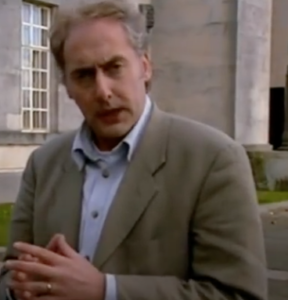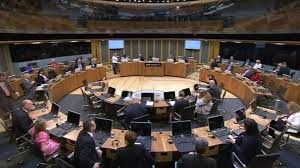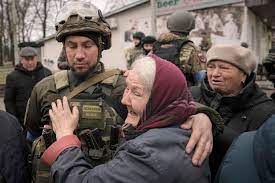- ‘Lies, damned lies etc…’ - 13th February 2026
- Missing in action - 12th February 2026
- Travel news again - 11th February 2026

During 23 years with the BBC, and a 41 year journalistic career (when he was trained to use clear and simple language, avoiding jargon), for our Editor, Welshman Phil Parry, economic stories affecting Wales would often dominate, with huge debates about securing a certain level of EU funds, but today it has changed, with governments around the world seeing their moves in this area as a form of warfare.
“Wales MUST get this grant”.
This has always been the cry to get money from Brussells.

At one stage, many years ago, it was to secure Objective One status so as to gain a certain level of grant money.
The European Union (EU) declared enticingly: “The main goal of regional policy in the European Union is economic and social cohesion. This is based on financial solidarity, whereby more than 35 % of the Union’s budget is transferred to the less-favoured regions (EUR 213 billion in 2000-06)…
- Objective 1: promote(s) the development and structural adjustment of regions whose development is lagging behind;
- Objective 2: support(s) the economic and social conversion of areas experiencing structural difficulties;
- Objective 3: support(s) the adaptation and modernisation of education, training and employment policies and systems in regions not eligible under Objective 1″.
 The issue of making Wales eligible for the top one (MORE money), was invariably brought up in interviews with politicians, as well as featuring in debates that I hosted around the country, and was a focus of interest for network programme-makers.
The issue of making Wales eligible for the top one (MORE money), was invariably brought up in interviews with politicians, as well as featuring in debates that I hosted around the country, and was a focus of interest for network programme-makers.
Indeed I made a Newsnight film trying to explain this business to a UK audience.
However it always struck me as slightly odd, because while the money was welcome, it meant these politicians were basically admitting Wales was extremely poor, so rather than changing the situation, they spent their political energies on asking for handouts!
But soon it changed.


After the Brexit referendum there was concern about getting the money before it actually happened, then when it did, whether the grants would be replaced.
As it took ages to get the money and actually build the project, this dragged on endlessly – well after the break became official.
Even two years ago, the Auditor General for Wales declared: “All EU Structural Funds Programme and Rural Development Programme funding has been committed to projects, but with £504 million still available to be spent”.
The urgent remarks continued: “Across the two programmes combined, every 1% of EU grant not spent equates to just under £27 million. However, managing the programmes is a balancing act. Although common practice, with commitments to projects and beneficiaries exceeding the available EU grant, if all the committed funding is claimed then expenditure over the 100% EU grant will need to be funded by the Welsh Government”.

Politicians at the Welsh Parliament/Senedd Cymru (WP/SC) seemed to agree with the concern.
The chair of the Public Accounts and Public Administration Committee, Mark Isherwood MS, said:“…to ensure Wales gets the best out of the £504 million EU funding still available before the end of 2023, the Welsh Government and WEFO (Welsh European Funding Office) must retain appropriate staffing capacity to support ongoing checks and processing”.
Now though it seems to have altered again (or is running alongside this), with major developed countries, especially the United States of America (USA) seeing economics as effectively a tool of warfare.

We have today, for example, seen Donald Trump’s imposition of tariffs, which have upset the global order, and incurred the wrath of world leaders.
But this is only the latest version of what had been underway anyway, with economics being used against countries (or trade blocs) that were in the bad books.
For instance, American officials persuaded foreign banks and energy companies to shun Iran, forcing it to negotiate a nuclear deal in 2015.

Western allies stopped big Russian firms from raising new money in global financial markets after the country’s annexation of Crimea in 2014, and more economic sanctions followed the full-scale invasion of Ukraine.
The Department of Commerce (DoC) banned countries from supplying China with advanced semiconductors made with American technology.
So there is nothing new under the sun.

The economic actions being taken today are just more extreme versions of those that have happened before, with a different name!
The memories of Phil’s astonishing, decades long award-winning career in journalism (when the way economic factors changed and were used, were often at the heart of stories) as he was gripped by the rare neurological disabling condition Hereditary Spastic Paraplegia (HSP), have been released in the book ‘A Good Story’. Order it now.









